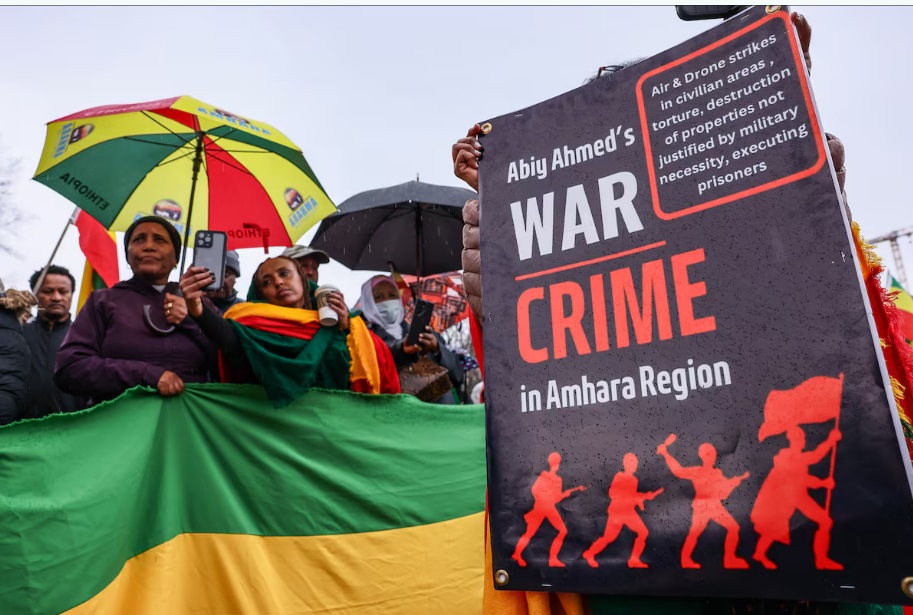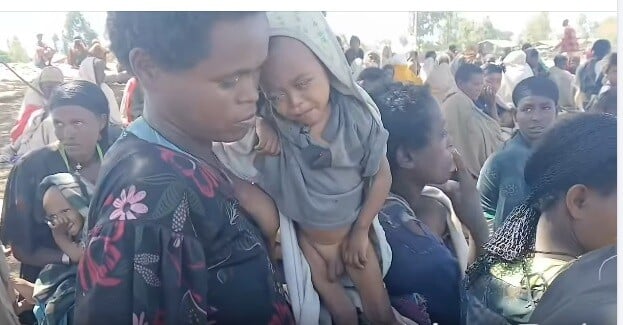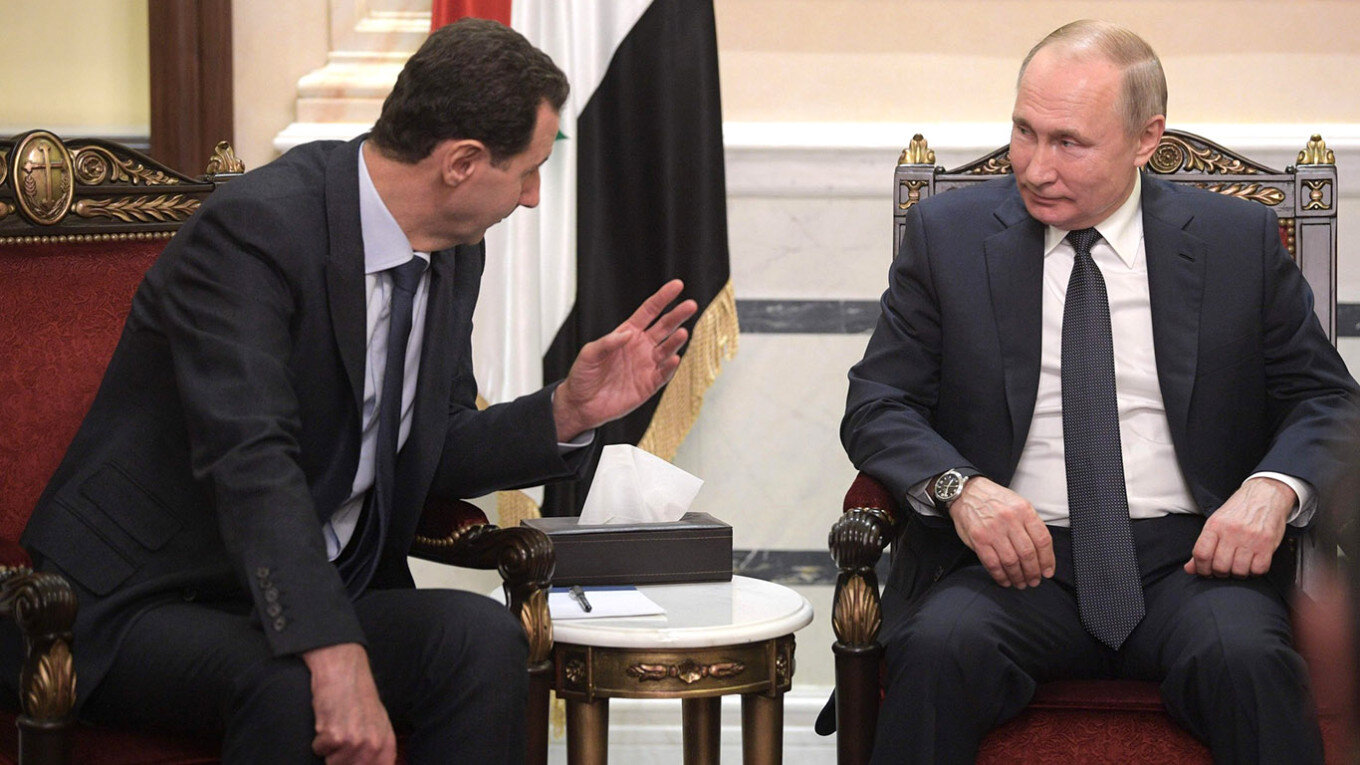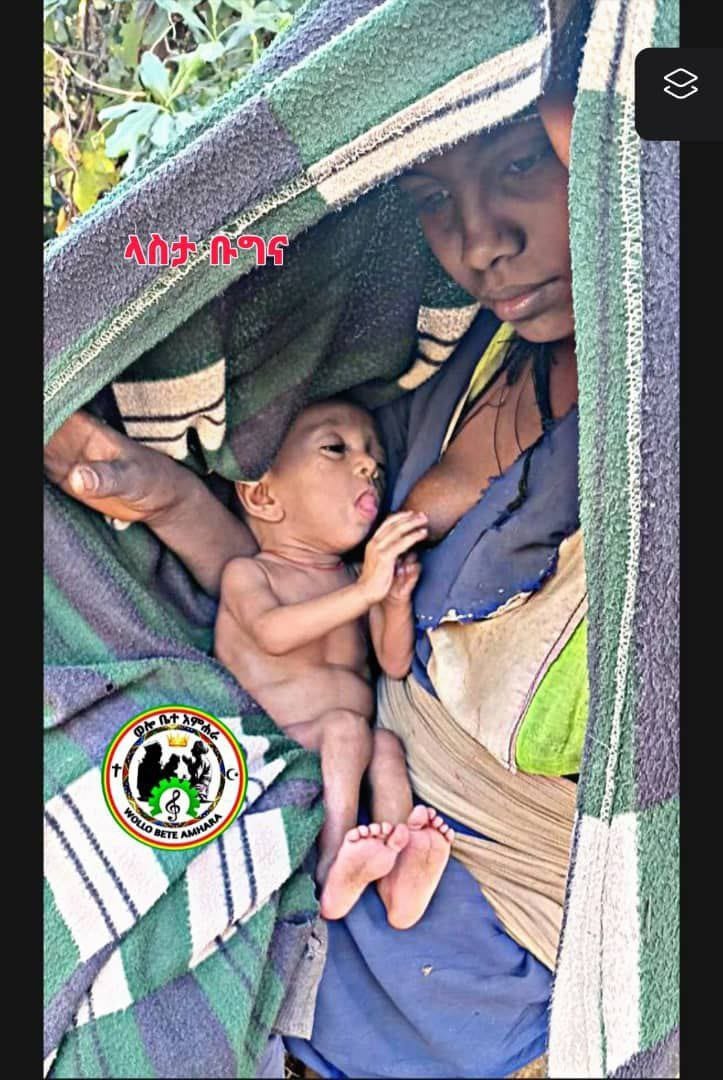 BY MESFIN TEGENU,
BY MESFIN TEGENU,
It has taken three weeks, but the world is slowly confirming the details and coming to grips with a shocking atrocity in Africa’s second most populous nation. In the Ethiopian village of Merawi, government soldiers massacred civilians in door-to-door house raids, then dumped the victims’ corpses in the street.
Government human-rights officials have now confirmed that at least 80 civilians were killed during the late-January onslaught in the northern region of Amhara, where troops loyal to the regime of Prime Minister Abiy Ahmad have been quelling an uprising. But the actual toll is likely much higher. Some reports estimate that as many as 150 were murdered by troops, including women and children, and at least one pregnant woman.
The only thing more horrifying than the statistical death toll is the shocking account of terror from those who survived. One resident, who lost his brother in the carnage, told the Guardian newspaper that soldiers were “barging into homes [and] smashing doors” in the aftermath of a skirmish between Ethiopian government forces and rebels. He said he personally knew of at least 45 fatalities.
An Orthodox priest who arrived in Merawi on Jan. 30 shortly after the massacre told the British publication that he had seen at least 50 dead bodies splayed across the village’s main highway, and that most “seem to have been killed execution-style, with a bullet wound to their heads.” Like the first eyewitness, this priest’s brother was also killed in the attack by troops who then stole his money and his phone.
The credible reports of these extrajudicial killings in Western news outlets have forced the government’s State of Emergency Investigative Board to acknowledge the incident in Merawi and launch an investigation. The probe comes after the U.S. ambassador to Ethiopia, Ervin Massinga, said the American government is “deeply concerned” about recent events in Amhara and called on the government “to ensure the perpetrators are brought to justice.”
Still, this shocking massacre has so far received scant attention, either in the U.S. media or from key policymakers back in Washington. This needs to change, and quickly. The growing crisis in Amhara is also an opportunity for the Biden administration, its Western allies and relief agencies to make good on their promises for a true partnership in Africa that puts human rights at the forefront.
The U.S., and the world, have been here before. Former president, Bill Clinton has stated that maybe his greatest regret from eight years in the Oval Office was his 1994 failure to intervene in Rwanda, where as many as 500,000 to 1 million were killed by genocidal militiamen. “I do feel a lifetime responsibility,” Clinton said of his administration’s inaction.
Ethiopia, of course, is no stranger to humanitarian crises, including the 1984-85 war-fueled famine remembered in the West for belated relief efforts like the Live Aid concert. Without more aggressive intervention, that history might repeat as a series of civil wars and a worsening drought — exacerbated by climate change — is accelerating a humanitarian crisis in the Horn of Africa.
The Amhara region where the Merawi massacre took place is Ground Zero for the current upheavals. Since last spring, the Abiy regime in Addis Ababa has undertaken a brutal, repressive campaign against civilians in Amhara, even after the forces leading the uprising had fought alongside the government to put down another rebellion in the Tigray region earlier this decade.
The government has declared a state of emergency in Amhara. Its deadly offensive has been marked by door-to-door raids, drone strikes on civilians, the destruction of churches and other historic landmarks, and the burning of granaries holding critical food supplies. This is occurring as an incipient famine takes root across rain-starved northern Ethiopia, and the cash-strapped Abiy government defaults on its debts.
The Ethiopian crisis could not come at a worse time for the stability of the Horn of Africa. In nearby Yemen, the conflict between Houthi rebels and the West over shipping-lane attacks, sparked by the Israel-Hamas War, continues to escalate. An accelerating civil war in Ethiopia could plunge the entire region into chaos, which adversarial rouge nations and terrorist states would be eager to exploit.
The Biden administration, the U.S. Congress, and the United Nations must launch an international intervention to end the violence and human rights abuses.
The leading humanitarian and relief agencies, including the United States Agency for International Development, must increase emergency aid, especially food supplies, to Amhara and other affected regions. The U.S. and European Union must demand a credible aid delivery mechanism to be administered by Ethiopia’s Orthodox Church as well as its Protestant and Catholic churches. These organizations proved their credible leadership in providing corruption-free food delivery during the country’s 1984-1985 drought.
Finally, the world community must demand an independent investigation into the Merawi massacre and accountability for those who perpetrated it.
The American government and its allies must use their influence, moral and economic, to force the Abiy regime to end the state of emergency and withdraw its troops from the region. The bloodshed in Merawi is a warning that Ethiopia is rapidly sliding into a season of genocide and famine. The world cannot stand by idly, as it did in Rwanda with such tragic results. The time for international action is now.
Mesfin Tegenu is executive chairman of the American Ethiopian Public Affairs Committee.

















